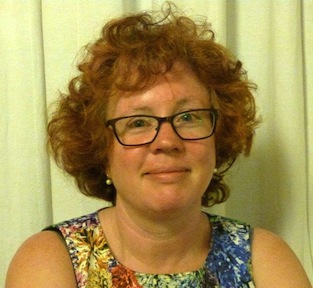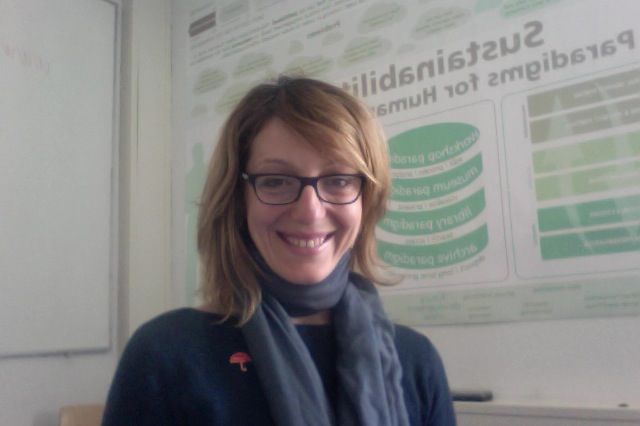Studying at the University of Verona
Here you can find information on the organisational aspects of the Programme, lecture timetables, learning activities and useful contact details for your time at the University, from enrolment to graduation.
Academic calendar
The academic calendar shows the deadlines and scheduled events that are relevant to students, teaching and technical-administrative staff of the University. Public holidays and University closures are also indicated. The academic year normally begins on 1 October each year and ends on 30 September of the following year.
Course calendar
The Academic Calendar sets out the degree programme lecture and exam timetables, as well as the relevant university closure dates..
| Period | From | To |
|---|---|---|
| Semester 1 | Oct 2, 2017 | Jan 20, 2018 |
| Semester 2 | Feb 26, 2018 | Jun 9, 2018 |
| Session | From | To |
|---|---|---|
| Winter session | Jan 22, 2018 | Feb 24, 2018 |
| Summer session | Jun 11, 2018 | Jul 28, 2018 |
| Autumn session | Aug 27, 2018 | Sep 22, 2018 |
| Session | From | To |
|---|---|---|
| LAUREE LINGUE - sessione autunnale a.a. 2016/2017 | Dec 18, 2017 | Dec 21, 2017 |
| LAUREE LINGUE - sessione invernale a.a. 2016/2017 | Mar 23, 2018 | Mar 29, 2018 |
| LAUREE LINGUE - sessione estiva | Jul 16, 2018 | Jul 21, 2018 |
| LAUREE LINGUE - sessione autunnale | Nov 12, 2018 | Nov 17, 2018 |
| LAUREE LINGUE - sessione invernale | Apr 12, 2019 | Apr 18, 2019 |
| Period | From | To |
|---|---|---|
| All Saints Day | Nov 1, 2017 | Nov 1, 2017 |
| Immaculate Conception | Dec 8, 2017 | Dec 8, 2017 |
| Christmas break | Dec 22, 2017 | Jan 7, 2018 |
| Easter break | Mar 30, 2018 | Apr 3, 2018 |
| Liberation Day | Apr 25, 2018 | Apr 25, 2018 |
| Labour Day | May 1, 2018 | May 1, 2018 |
| Patron Saint Day | May 21, 2018 | May 21, 2018 |
| Republic Day | Jun 2, 2018 | Jun 2, 2018 |
| Summer break | Aug 13, 2018 | Aug 18, 2018 |
Exam calendar
Exam dates and rounds are managed by the relevant Foreign Languages and Literatures Teaching and Student Services Unit.
To view all the exam sessions available, please use the Exam dashboard on ESSE3.
If you forgot your login details or have problems logging in, please contact the relevant IT HelpDesk, or check the login details recovery web page.
Academic staff
 alessandro.bigardi@univr.it
alessandro.bigardi@univr.it

Bradas Marija
 marija.bradas@univr.it
marija.bradas@univr.it
 paolamaria.caleffi@univr.it
paolamaria.caleffi@univr.it
 veronica.gobbato@univr.it
veronica.gobbato@univr.it
 tiziana.mancinelli@univr.it
tiziana.mancinelli@univr.it
 sara.paolini@univr.it
sara.paolini@univr.it
 fabioantonio.scrignoli@univr.it
fabioantonio.scrignoli@univr.it
Study Plan
The Study Plan includes all modules, teaching and learning activities that each student will need to undertake during their time at the University.
Please select your Study Plan based on your enrollment year.
1° Year
| Modules | Credits | TAF | SSD |
|---|
1st foreign language2nd foreign language1st foreign literature2nd foreign literature2° Year activated in the A.Y. 2018/2019
| Modules | Credits | TAF | SSD |
|---|
1st foreign language2nd foreign language1st foreign literature2nd foreign literatureOne course to be chosen among the following3° Year activated in the A.Y. 2019/2020
| Modules | Credits | TAF | SSD |
|---|
1st foreign language2nd foreign languagePhilology of the first or second language| Modules | Credits | TAF | SSD |
|---|
1st foreign language2nd foreign language1st foreign literature2nd foreign literature| Modules | Credits | TAF | SSD |
|---|
1st foreign language2nd foreign language1st foreign literature2nd foreign literatureOne course to be chosen among the following| Modules | Credits | TAF | SSD |
|---|
1st foreign language2nd foreign languagePhilology of the first or second language| Modules | Credits | TAF | SSD |
|---|
Legend | Type of training activity (TTA)
TAF (Type of Educational Activity) All courses and activities are classified into different types of educational activities, indicated by a letter.
English Language 1 (2017/2018)
Teaching code
4S002896
Teacher
Coordinator
Credits
9
Language
English
Scientific Disciplinary Sector (SSD)
L-LIN/12 - LANGUAGE AND TRANSLATION - ENGLISH
Period
Semester 2 dal Feb 26, 2018 al Jun 9, 2018.
Learning outcomes
The course is a first introduction to the study of English linguistics and aims at helping students develop a higher degree of metalinguistic awareness in relation to two different levels of linguistic analysis, namely the phonetic-phonological level, and the morphological level. By the end of the course students will be able to recognise, produce, describe and classify the sounds of the English language, and will have developed the ability to observe phonetic variation across main varieties. As for the morphological level, by the end of the course students will be able to identify word classes, to describe the way words are structured, and to recognise the most productive formation processes through which words are produced.
Program
PHONETICS AND PHONOLOGY
- Definition of phonetics and phonology and their focus of study
- The relationship between spelling and pronunciation: grapheme, phoneme, phone, allophone
- The International Phonetic Alphabet
- The speech organs
- The phonological system of the English language
- Classification of vowel sounds: the vowel trapezoid
- Classification of consonant sounds: voicing, place of articulation, manner of articulation
- The concept of minimal pair
- Phonological transcription vs phonetic transcription
- Connected speech: assimilation, elision, vocing/de-voicing phenomena, weak vs strong forms, linking phenomena.
- The syllable
- Word stress pattern
- Sentence stress: stressed vs unstressed syllable, rhythm
- Main phonetic-phonological differences between GB, GA, and the use of English as a lingua franca (EFL)
MORPHOLOGY
- Definition of morphology and its focus of study
- The morpheme and the concept of allomorgh
- Simple vs complex words
- Word classes and subclasses
- Grammar vs lexical words
- The main word-formation processes:
- inflection
- derivation with affixation
- conversion
- compounding
- truncation
- abbreviation (acronyms and initialisms)
- blending
- The main English suffixes and prefixes
Basic readings
Facchinetti, Roberta (2016) English Phonetics and Morphology. A Reader for First Year University Students (3rd ed.). Verona: Quiedit.
Kuiper, Koenraad and W. Scott Allan (2017). An Introduction to English Language: Word, Sound and Sentence (4th ed.). Houndsmills: Palgrave Macmillan.
Additional readings
Cruttenden, Alan (2014) Gimson's Pronunciation of English. London: Routledge.
Plag, Ingo (2003) Word-Formation in English. Cambridge: Cambridge University Press.
The course consists of 18 classes and combines frontal teaching with class activities and practice in preparation for the final exam. The pdf. docs of the teaching sessions as well as other materials for the final written exam will be made available on the Moodle platform throughout the course.
The course will be held entirely in English.
| Author | Title | Publishing house | Year | ISBN | Notes |
|---|---|---|---|---|---|
| Kuiper, K. and W. S. Allan | An Introduction to English Language: Word, Sound and Sentence (4th edition) (Edizione 4) | Palgrave Macmillan | 2016 | ||
| Facchinetti, R. | English Phonetics and Morphology. A reader for first year university students (Edizione 3) | QuiEdit | 2016 | ||
| Cruttenden, A. | Gimson's Pronunciation of English | Routledge | 2014 | ||
| Plag, Ingo | Word-Formation in English | Cambridge University Press | 2003 |
Examination Methods
Pre-requisite: B2 language certificate (Council of Europe). This can be obtained from the Language Centre (CLA) or from a number of certified language institutes (see student guide). For certificates gained at external institutes a certificato di equipollenza issued by the CLA is needed.
Aims: the exam aims at evaluating:
- knowledge and understanding of the topics in the syllabus
- ability to make linguistic analyses at both the phonetic-phonological and morphological levels
- metalinguistic awareness
Contents: students will be examined on the whole range of topics listed in the syllabus.
Assessment: a written exam consisting of 30 items including open questions, multiple choice questions, phonetic/phonological transcriptions, and exercises. The exam format will be illustrated in detail during the course. During the last class students will have the opportunity to perform a mock exam.
The exam lasts one hour.
Evaluation: the final mark (/out of 30) will derive from the evaluation of the written exam (50%) and the mark of the B2 language certificate (50%).
Final note: the contents of the exam are the same for attending and non-attending students. All students will be tested for the same skills (see exam aims).
Type D and Type F activities
To discover all the teaching activities accredited by the foreign teaching college click here
Career prospects
Module/Programme news
News for students
There you will find information, resources and services useful during your time at the University (Student’s exam record, your study plan on ESSE3, Distance Learning courses, university email account, office forms, administrative procedures, etc.). You can log into MyUnivr with your GIA login details: only in this way will you be able to receive notification of all the notices from your teachers and your secretariat via email and soon also via the Univr app.
Student login and resources
Assegnazione tutore
Attività accreditate D/F
Calendario didattico dettagliato
Cambio lingua curriculare
Competenze informatiche
Competenze linguistiche (prima e seconda lingua)
Competenze linguistiche in triennale (terza lingua CFU F)
Compilazione del piano didattico
Corso di Lingua portoghese
Erasmus+ e altre esperienze all'estero
Linguistic training CLA
Graduation
List of theses and work experience proposals
| Stage | Research area |
|---|---|
| PROGETTO MAMBRINO Stage per bibliografia | Various topics |
Stage e tirocini
Nel piano didattico della laurea triennale in Lingue e culture per l’editoria (L11 ED) è previsto un tirocinio/stage obbligatorio (CFU 6).
Le attività di stage sono finalizzate a far acquisire allo studente una conoscenza diretta in settori di particolare interesse per l’inserimento nel mondo del lavoro e per l’acquisizione di abilità professionali specifiche.
Le attività di stage sono svolte sotto la diretta responsabilità di un singolo docente presso studi professionali, enti della pubblica amministrazione, aziende accreditate dall’Ateneo veronese.
I crediti maturati in seguito ad attività di stage saranno attribuiti secondo quanto disposto nel dettaglio dal “Regolamento d’Ateneo per il riconoscimento dei crediti maturati negli stage universitari” vigente.
- Tutte le informazioni in merito agli stage per futuri studenti sono disponibili alla pagina Stage e tirocini.
- Tutte le informazioni in merito agli stage per studenti iscritti sono pubblicate in MyUnivr - come fare per - stage e tirocini.
- Tutte le informazioni in merito agli stage per le aziende sono disponili alla pagina Stage e tirocini per azienze.
Ulteriori informazioni al seguente link https://www.univr.it/it/i-nostri-servizi/gestione-carriere-studenti-lingue-e-letterature-straniere/stage-e-tirocini-lingue-e-letterature-straniere


 +39 045802 8465
+39 045802 8465





























